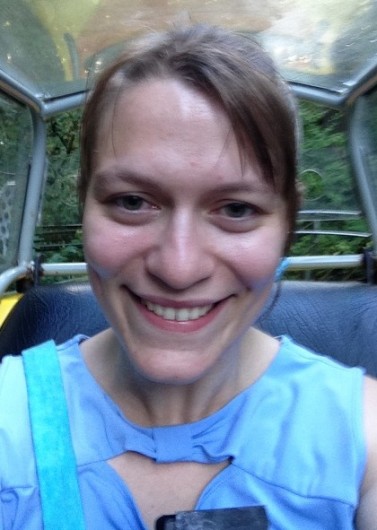What is autism to me?
I was diagnosed with autism at the age of 2. Though some people consider that to be far too young for a diagnosis, I think I’m one of the lucky ones. Some people, especially girls, don’t get a diagnosis until much later in life (and may still not have one) and spend their whole lives wondering why they’re so different from everybody else. I got to know right away, and I’m glad.
All my life, I’ve had very strong interests in particular subjects. At the age of 6, I had such a strong interest in the video game character Yoshi, I actually used the name Yoshi when inventing a new word: “yoshiablic.” This word was meant to describe pleasant feelings I get when engaging in my interests. Throughout the years, doing so involved doing a lot of research on my topic of choice.
At age 11, I would remember the grand opening date, the location, the number of stores, and the square footage of many malls, such as Lloyd Center in Portland, Oregon. I have had a variety of interests, including towers, bridges, roller coasters, cars, cities, malls, space shuttles, flowers, video games, the Titanic, volcanoes, astronomy, origami, cats, and bows. My latest interest is in particle accelerators used for scientific research (such as the Large Hadron Collider).
I have many talents as well. I graduated high school on time with a 3.81 GPA. I have extensive artistic capabilities, and an enhanced ability to understand myself. When it comes to social interaction, however, I tend to feel awkward and unwanted. I certainly do have a lot of friends, but I’m highly critical of myself and how I interact with people. Also, I tend to have more emotions than I know what to do with.
This was my downfall in school, as I had meltdowns on a fairly regular basis. My social and emotional issues have led to low self-esteem in this area. I cannot count how many times I’ve had significant issues at school that warranted a call to my mom. Schools throughout the years have handled me differently. In my opinion, middle school was the one that handled me the best.
The teachers there allowed me to be independent, encouraged me to engage in my interests, and had a safe place and safe people for me to turn to in times of stress.
As for the mistakes schools made with me, in high school, my independence was taken away when they required me to have a one-on-one aide when I went to class. This occurred following a severe meltdown in which I had cut myself out of anger. I felt embarrassed and that the teachers who forced the aides on me were very condescending. All they ever did was focus on the negative. Every time I tried to mention a way I had improved, they would either object to what I had to say or redirect the conversation to my weaknesses.
At the ages of 10 and 11, I was subject to what I feel was the worst mistake teachers have ever made with me. I had my interest in malls at this time. The teachers felt that my interests were a distraction in the classroom, so I was therefore not allowed to even mention them while in the school building. Until teachers made this rule, which occurred twice and lasted around a month each time, I actually enjoyed going to school. I felt violated as a result of this rule, and spent the next 11 years dwelling on it and trying to forgive the teachers that made the rule.
 Today, I use my experience with this wrongful rule to advocate for other autistic people. As unacceptable as this rule was, it taught me that autistic people are inseparable from their interests. Trying to take away or suppress our interests violates who we are and is almost criminal. I emphasize the importance of interests when I am asked how to best deal with autistic people. I believe interests are a natural, built-in coping mechanism that can enhance the lives of autistics.
Today, I use my experience with this wrongful rule to advocate for other autistic people. As unacceptable as this rule was, it taught me that autistic people are inseparable from their interests. Trying to take away or suppress our interests violates who we are and is almost criminal. I emphasize the importance of interests when I am asked how to best deal with autistic people. I believe interests are a natural, built-in coping mechanism that can enhance the lives of autistics.
So what is autism to me?
It’s a human brain programmed in a way that is far different from the average person. These differences often put the individual at a disadvantage, much like if an Android phone was in a world run by Apple phones.
Autism may have common aspects among people diagnosed with it, but no two autistic people are exactly alike. It is a mistake to assume every autistic individual is the same.
Some people (like me) struggle with extreme emotions and social awkwardness, while others can’t even speak or care for themselves. No matter the differences, no matter the struggles, we are all human and deserve to be treated accordingly.
The Mighty is asking its readers the following: If you could write a letter to the disability or disease you (or a loved one) face, what would you say to it? If you’d like to participate, please send a blog post to community@themighty.com. Please include a photo for the piece, a photo of yourself and 1-2 sentence bio.
